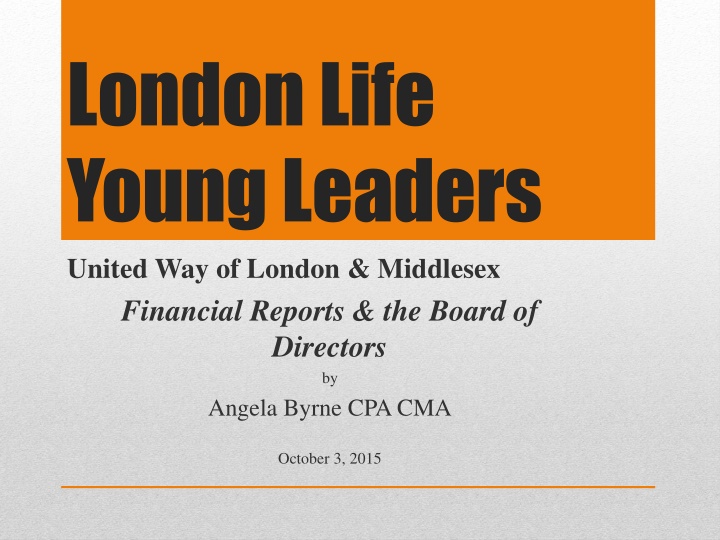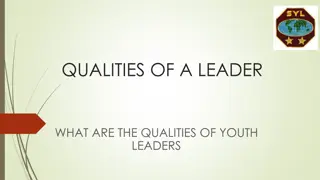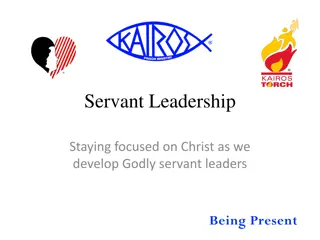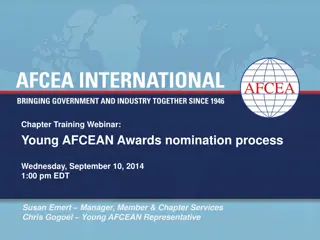Financial Oversight and Accountability in Non-Profit Organizations
Explore the crucial role of fiduciary oversight in maintaining the financial stability and viability of non-profit organizations. Learn about the responsibilities of board directors, including monitoring organizational performance, ensuring sound financial management, and upholding financial accountability to stakeholders. Discover the key considerations and questions boards should address to fulfill their fiduciary duties effectively.
Download Presentation

Please find below an Image/Link to download the presentation.
The content on the website is provided AS IS for your information and personal use only. It may not be sold, licensed, or shared on other websites without obtaining consent from the author.If you encounter any issues during the download, it is possible that the publisher has removed the file from their server.
You are allowed to download the files provided on this website for personal or commercial use, subject to the condition that they are used lawfully. All files are the property of their respective owners.
The content on the website is provided AS IS for your information and personal use only. It may not be sold, licensed, or shared on other websites without obtaining consent from the author.
E N D
Presentation Transcript
London Life Young Leaders United Way of London & Middlesex Financial Reports & the Board of Directors by Angela Byrne CPA CMA October 3, 2015
Fiduciary Oversight & the Board Financial Reports reviewed by the Board Audited Financial Statements Budgets & Interim Reports Questions that Boards Forgot to Ask & the Consequences Questions / Discussion Today s Agenda
Fiduciary oversight - the duty of directors to act in the best interests of the organization they serve at all times, even at the expense of their own self-interest 20 Questions Directors of Not-For-Profit Organizations Should Ask About Fiduciary Duty, CPA Canada, 2009 A key monitoring function of a Board of Directors is to ensure that financial stability and viability are maintained Boards must be diligent in its efforts to ensure that the organization is in a healthy financial position Fiduciary Oversight
The Board is ultimately accountable for ensuring the overall health & performance of the organization The Board is held financially accountable by: Clients/consumers for the sound financial management of the organization Government funders for the prudent management of funds and complying with reporting requirements Canada Revenue Agency for payroll remittance, charitable return, GST/HST Donors for the prudent management of contributions and donations Financial Accountability
Board is responsible for monitoring organizational performance & holding management accountable for results Specific financial responsibilities include: Financial stability and future viability Approval of the annual budget Surplus/deficit in funding Approval of capital acquisitions and dispositions Approval of debt obligations Annual Audit Strong internal controls to ensure there is no opportunity for error, misuse or fraud Financial Responsibilities
Signs of weak fiduciary oversight: Overspending Fraud Resources mismanaged Waste Demoralizing culture Debt Fines & Penalties Loss of charitable status Why is it important?
The Board has a responsibility to ensure that financial reporting allows it to effectively monitor the financial stability and sustainability of the organization Financial Responsibilities
Audited Financial Statements Reports on the financial position of the organization and financial activity for the previous year Used to inform stakeholders about the organization operations Budgets Forecasts future financial activity Provide information that enables effective planning, management and control Interim reports Reports on actual activity as compared to the budget Financial Reports
Statement of Financial Position Statement of Fund Revenue and Expenses Statement of Changes in Fund Balances Cash Flow Statement Notes to the Financial Statements Management Letter Audited Statements
What does it tell us? Tells us about the financial health of the organization Identifies assets (owns), liabilities (owes), fund balances (equity) of the organization Fixed point in time or snapshot at year end What questions to ask? Is there enough cash to pay the bills? Is this increasing or decreasing? How much liability (debt levels) is the organization carrying? Is this increasing or decreasing? Fund balances increasing or decreasing? Why? Statement of Financial Position
What does it tell us? Revenue and expenses over a period of time Excess of revenue over expenses Changes in Fund balances Sustainability of programs What questions to ask? Do variances indicate financial pressures that threaten future viability? If so, what action is being taken today to mitigate this threat? Are there any significant surplus/deficits in programs? A surplus may indicate program outcomes are not being met and excess funds may need to be returned to the funder. A deficit may indicate building financial pressures. Statement of Fund Revenue and Expenses
What does it tell us? Exchange of money between the organization & outside world Depicts the ways cash has changed during a designated period of time Indicates sources & uses of cash What questions to ask? Are programs returning positive cash flow? What is contributing to changes in cash balances? Cash Flow Statement
What does it tell us? Provides the reader with additional information to better understand the statements What questions to ask? Are there any contingencies noted that could pose a financial risk? Are there any related party transactions noted that could affect objectivity of directors? Notes to the Financial Statements
3. Fund accounting The financial statements separately disclose the activities of the following funds maintained by United Way of London & Middlesex. Operating Fund The Operating Fund represents the excess of revenue over expenditures related to ongoing programs and activities. All agency allocations, strategic investments funded from the annual campaign and United Way agency itself are financed from this fund. Note Example
What does it tell us? Provides us with auditor s opinion on the financial health of the organization and the strength of internal controls What questions to ask? Has the auditor noted any concerns regarding continued operations? What actions have been taken to rectify items mentioned in the management letter? Management Letter
Board Actions Review of audited financial statements with external auditor Discuss financial status and internal controls Identify any action required and implement Audited Statements
What do Budgets tell us? Forecasts (estimates) revenue and expenditures for specific period Ideally budget reflects the organization s priorities, i.e. matches financial resources to organizational strategy What questions to ask? What are the key budget assumptions? What events or activities may impact the budget? Budgets & Interim Reports
Actions of the Board Review budget with Executive Director Compare last year s budget to financial performance of previous year Assess budget for reasonableness Determine magnitude of variances at which point Executive Director must return for Board approval Assess budget for consistency with strategic direction Approve budget Approval of the annual budget
What do Interim Reports tell us? Monitors actual financial activity to budget Provides information to act What questions to ask? At a consolidated level, are actual revenue and expenses in line with the budget? What is the cause of the significant variances? Are goals being achieved? Budgets & Interim Reports
1. Financial risk of fundraising events 2. Programs that are not sustainable 3. Financial commitments without a plan 4. Missing financial reports Boards that Forgot the Questions
www.angelabyrnecma.com info@angelabyrnecma.com @byrne_angela Contact me























